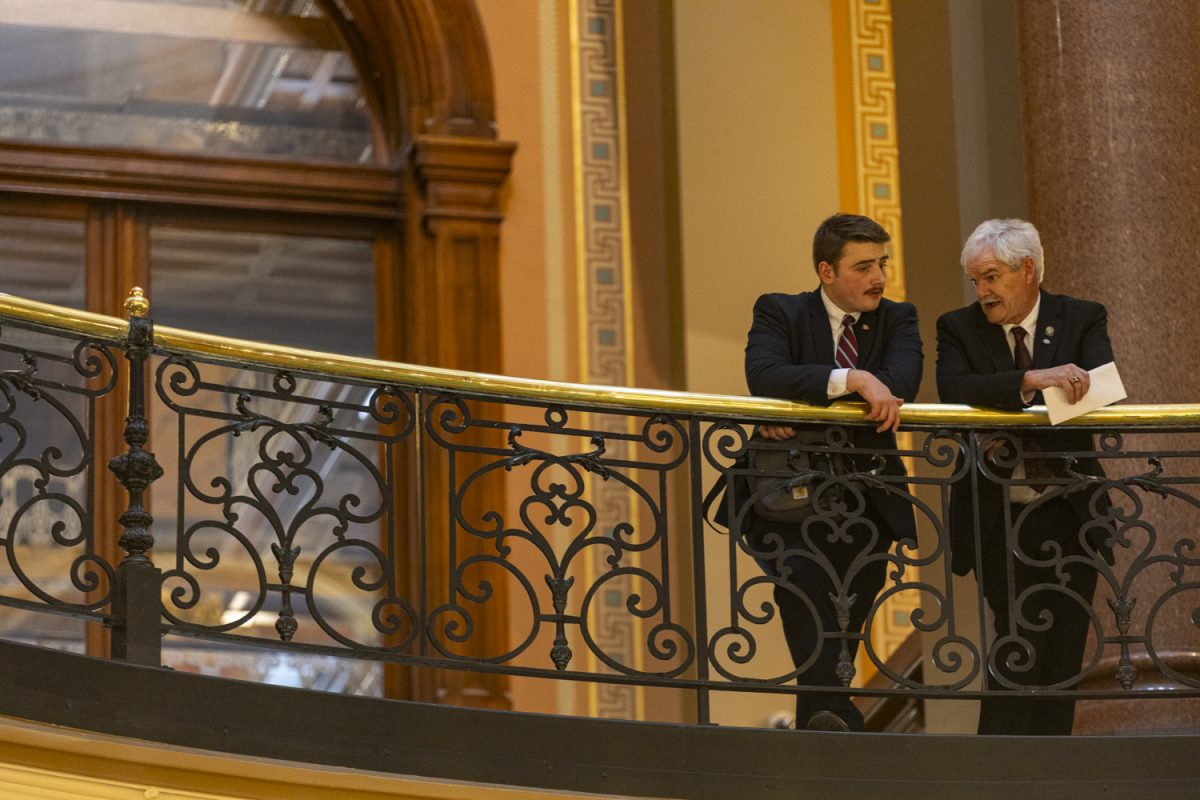A panel of Iowa lawmakers unanimously agreed to advance a bill on Wednesday to drastically increase the fines for violating Iowa’s open meeting laws.
Under the bill, violating Iowa’s open meeting laws by accident would be punishable with a fine between $1,000-5,000, which is up from $100 to $500. If the violation is intentional, the fine would increase to $10,000 to $25,000. The law would also mandate education on Iowa’s public records and open meeting laws for newly elected officials.
The bill comes on the heels of Davenport’s violation of open meetings law after now-retired city attorney Tom Warner entered into settlement agreements with city employees — without prior approval from the city council — in an open meeting.
According to the Quad City Times, the council approved the settlements in an open meeting in a 6-1 vote, after discussing the settlement in a closed session.
Iowa Rep. Brent Siegrist, R-Council Bluffs, described Davenport’s violations as “egregious” and said the bill was introduced because of the recent violations. Rep. Gary Mohr, R-Bettendorf, introduced the bill and told the Quad City Times the recent violations were the impetus.
“Some of the people in the state that think they can just not do what the open records laws call for, and they need to be disabused of that notion,” Siegrist said in the hearing Wednesday.
Emily Piper, a lobbyist for the Iowa Association of School Boards, registered against the bill. She said while she agrees with the intent of the bill, the hefty fines for civil servants who violate the open meeting laws could discourage those seeking public office, especially those seeking a position on unpaid school boards.
“We think the fines are a little steep for elected but unpaid volunteers like a school board member, we’re certainly not opposed to fines if there is a violation,” Piper said. “These are just very steep for someone who’s not making any money to do this job.”
Piper and other lobbyists representing local government associations like the Iowa Association of Counties were concerned about the vagueness of the education mandate.
Siegrist said the bill needs adjustments to clarify the effects on municipalities and ensure the fines aren’t prohibitive for those seeking to enter public service, but it accomplishes its purpose and the panel unanimously agreed to move the bill forward.
“As long as we have examples of people ignoring the law, we need to make sure we call them to account this bill would do that,” Siegrist said.
Correction: a previous version of this article stated that the Davenport City Council voted on the settlement in a closed session. However, the Davenport City Council deliberated on the settlements in closed session and voted on the settlement in open session. The Daily Iowan regrets this error.



